All vessels depicted in this glossary were unearthed at Zominthos.
Amphora (plural, amphorae or amphoras)
An amphora is a two-handled vase with a long neck that is narrower than its body. The name derives from the ancient Greek word amphoreus (αμφορευς), an abbreviation of amphiphoreus (αμφιφορευς), a compound word combining amphi- (“on both sides,” “twain”) plus phoreus (“carrier”), from pherein (“to carry”), referring to the vessel’s two carrying handles on opposite sides. A smaller-size amphora is called an amphoriskos.
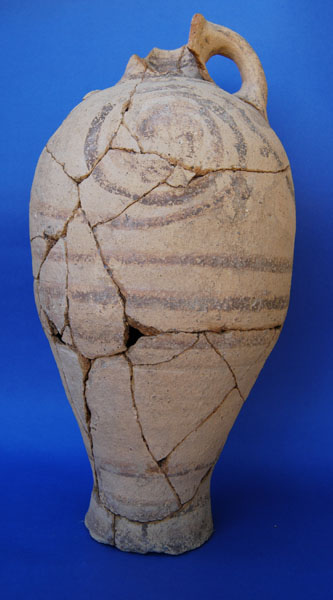 Amphora |
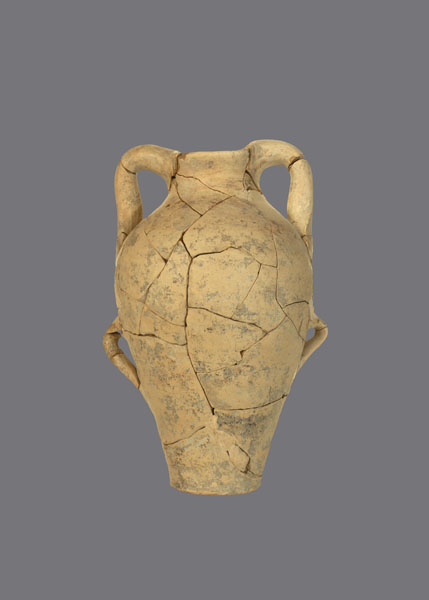 Amphoriskos |
Beaked Jug
Vessel with a pouring lip shaped like a duck’s beak
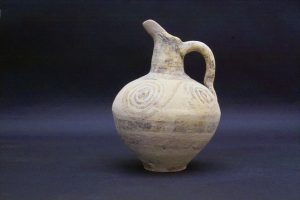
Beaked jug
Chytra
Cooking pot with three legs
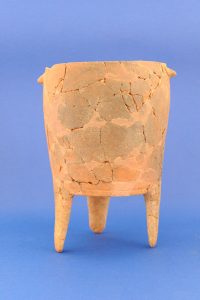
Chytra
Closed Vessel
Vessel with a closed mouth, appropriate for pouring or transferring liquids
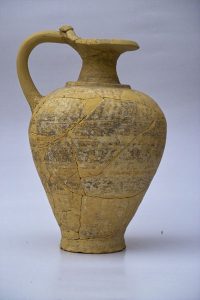
Closed vessel
Cup
The cup was a very common, everyday vessel during the Minoan period. There were many variations on its shape: conical, handle-less, hemispherical, bell-shaped, straight-sided, spouted, and so on.
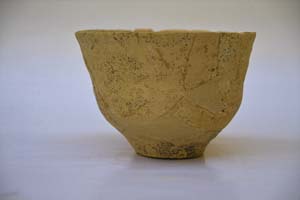 Bell-shaped cup |
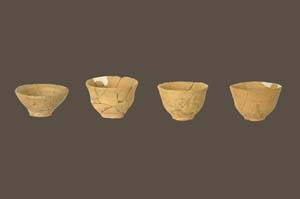 Handle-less conical cups |
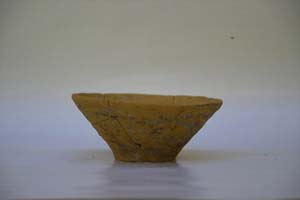 Miniature cup |
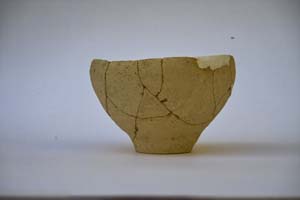 Rounded cup |
 Straight-sided cup |
|
Kalathos
A wide-based, straight-sided type of basket
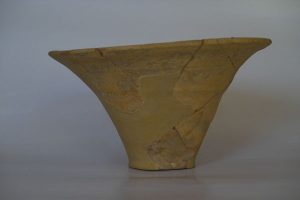
Kalathos
Karpodochos (Fruit Stand)
An open-mouthed vessel of a large diameter, on a high stand
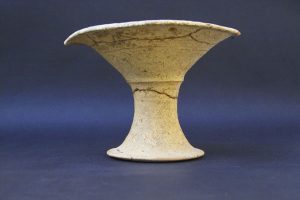
Karpodochos
Kymbe
A shallow, open, oblong vessel that looks like a small bathtub
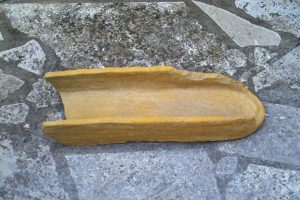
Kymbe
Lamp
A vessel used just like a traditional lamp, inside of which was placed a special fuel, such as olive oil or beeswax
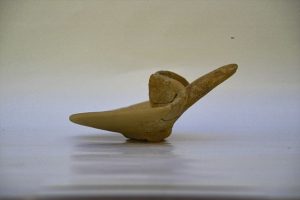
Lamp
Lekane (plural, lekanes)
A bowl most likely used in food preparation
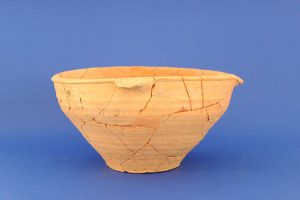
Lekane
Milk Jug
Small, cylindrical containerwith a narrow mouth, a handle, and a lip; used for holding and pouring liquids
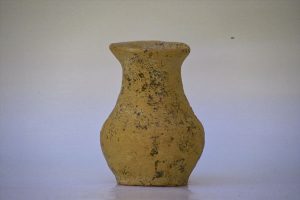
Milk jug
Open Vessel
Vessels with an open mouth were probably not used for storage, but for household activities such as blending, eating, etc.
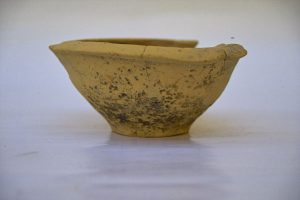
Open vessel
Pithos (plural, pithoi)
The ancient Greek word (πιθος) for a large storage jar of a characteristic shape
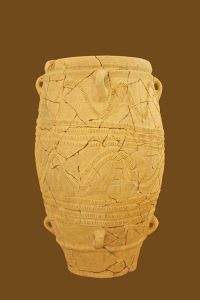
Pithos
Rhyton (plural, rhyta)
The rhyton (derived from the ancient Greek word, ρυτον) is a container from which fluids were intended to be drunk or poured as a libation in a religious ceremony. Each rhyton has a hole at the bottom, through which liquids slowly flowed.
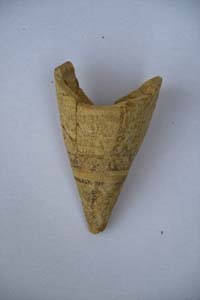 Rhyton base |
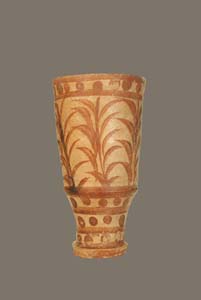 Rhyton with floral motif |
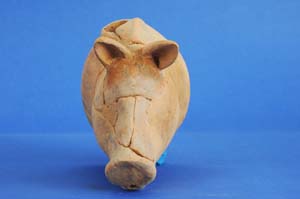 Rhyton in the shape of a pig |
|
Spouted Vessel
A closed- or open-mouthed vessel with a mouth formed appropriately for the flow of liquid; one variation is the bridge-spouted vessel, a type of pitcher with a connecting element between the spout and fill opening (the spout is a separate opening from the usually smaller, central fill opening)
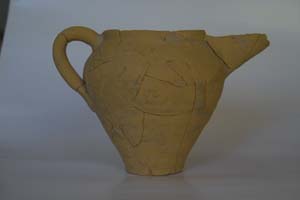 Spouted vessel |
 Bridge-spouted jug |
Stirrup Jar
A vase characteristic of Mycenaean pottery that has a false, closed mouth, a side spout, and two handles on its shoulders; there are different sizes and variations
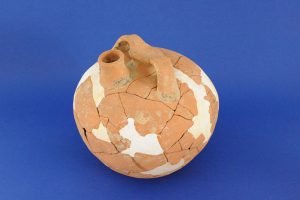
Stirrup jar
Notifications